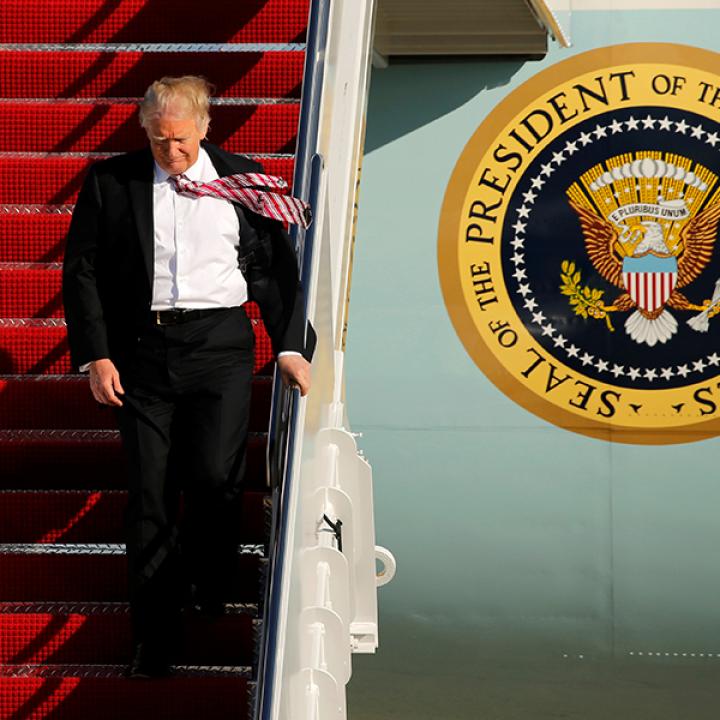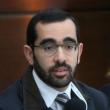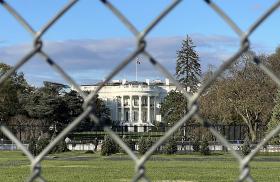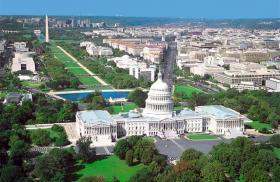
- Policy Analysis
- PolicyWatch 4037
President Trump's Gulf Visit: Setting the Stage for Strategic Wins

Experts and former diplomats discuss what Gulf leaders are expecting from the trip, including which regional issues they are most keen on adding to the planned slate of business talks.
On May 8, The Washington Institute held a virtual Policy Forum with Dennis Ross, Joyce Karam, and Emile Hokayem. Ross is the Institute’s Davidson Distinguished Fellow and a former U.S. special envoy with service in four administrations. Karam is a journalist with decades of experience covering the Middle East, including her current post as senior news editor at Al-Monitor. Hokayem is the director of Middle East regional security at the International Institute for Strategic Studies. The following is a rapporteur’s summary of their remarks.
Dennis Ross
Traditionally, a president’s first scheduled trip abroad is carefully calibrated to maximize geostrategic impact. Donald Trump, however, is no traditional president. His visit to Qatar, Saudi Arabia, and the United Arab Emirates will overwhelmingly focus on America’s economic relationships with these states. Trillions of dollars’ worth of arms sales and investment projects—both for Gulf-based companies in the United States and American companies in the Gulf—are expected to be announced.
In 2017, Trump similarly chose Saudi Arabia as the inaugural foreign trip of his first term and announced that the kingdom would invest hundreds of billions of dollars in the United States. Ultimately, much of that investment never materialized. Yet the gap between announcements and deliveries will likely be smaller this time, in no small part because of the groundwork laid by the Biden administration in areas such as 5G/6G networks, artificial intelligence, and technology protections. A Saudi civil nuclear announcement is likely as well—another example of the Biden administration setting the stage. Regardless of his predecessor’s role, however, President Trump will presumably tout any new announcements as proof of his dealmaking acumen and the wisdom of his transactional approach to foreign policy.
Even amid the trip’s economic focus, the president’s meetings may illuminate urgent geopolitical facts that his administration must contend with in order to make progress on issues such as the future of Gaza and Saudi normalization with Israel. The Trump team inherited a reality in which Israel transformed the regional balance of power by decapitating Hezbollah in Lebanon, contributing to the fall of Syria’s Assad regime, and decimating Iran’s air defenses and ballistic missile production capabilities. Yet these successes will wind up as ephemeral tactical achievements if Washington fails to seize the moment and transform such gains into enduring political change.
The administration should therefore define its objective in the Middle East as achieving long-term political change through greater regional integration, an end to Iran’s nuclear weapons option, and Saudi normalization with Israel. Of course, conversations about such topics will likely stay behind closed doors during the Gulf trip so as not to overshadow the administration’s economic deals. Yet President Trump should return home with a clearer realization that he cannot achieve enduring change in the region until the war in Gaza ends. Failing that, neither Saudi normalization nor greater regional integration seems feasible.
Joyce Karam
The president’s trip takes place against a backdrop of great powers jockeying for influence in the Middle East. China in particular has made significant inroads in the Gulf, becoming the top trading partner of each state that Trump will visit. Beijing also remains the top purchaser of Saudi oil—an especially important consideration as Crown Prince Muhammad bin Salman pursues ambitious and costly domestic modernization. Russia’s partnerships in the region are more limited but still significant.
Even so, the United States is still unparalleled as a security partner, and Gulf states recognize the value of having American military assets in the region. Neither they nor Washington have an interest in overplaying China’s growing influence during this trip. Rather, U.S. officials seek to emphasize the depth and strength of American economic partnerships, while the Gulf states want to continue valuable cooperation with Chinese officials and companies without crossing U.S. red lines on defense issues.
In Qatar, officials see this visit—the first by a sitting U.S. president since 2003—as a huge opportunity and could sign multiple major deals, including potential agreements on Boeing jet purchases. Although Doha has played a critical mediating role during the Gaza war, its ties to Hamas and other radical Islamist groups were a source of bilateral tension during Trump’s first term. This trip is a prime opportunity to mend fences and set the tone for the next four years.
In Saudi Arabia, officials might be expecting the president to ask for increased oil production to bring down prices. On one hand, the crown prince must rely on high oil prices to a certain degree in order to sustain his modernization plan. On the other hand, he may need to oblige this U.S. request to achieve other major objectives with Washington, including a civil nuclear deal and major defense purchases.
In the UAE, officials are confident they have positioned themselves well via recent high-level visits to the United States, the transition of AI contracts to American companies, the construction of a “Trump Tower” in Dubai, and other private-sector partnerships. Yet much like Riyadh and Doha, Abu Dhabi remains anxious about Washington’s long-term security commitment to the region, the threat from Iran, and the degree to which the Trump team will factor Emirati interests in its brewing nuclear agreement with Tehran. The public will primarily hear about the visit’s economic outcomes, but Gulf leaders will undoubtedly seek greater clarity in private about how the United States plans to address the Gaza war, conclude its negotiations with Iran, and fit the broader region into that calculus.
Emile Hokayem
The Gulf states have long applied a threats-based framework to their relations with the United States, with bilateral partnerships emerging from their reliance on American military might to counter common adversaries. Yet this degree of dependence has created vulnerabilities that these states now seek to diminish by diversifying their international relationships. They do not want to cast aside this dependence altogether—rather, they want to feel (and appear to others) as if they have greater strategic and defense autonomy.
Part of this shift involves asking quiet but firm questions about the degree of U.S. commitment to their security given the Trump administration’s other global priorities and “America First” agenda. Moreover, Qatar, Saudi Arabia, and the UAE have developed mature approaches of their own and want to move from a strategy of hedging to bridging. That is, after becoming more active in global politics and economics in recent years, they are now in a position to provide access, capital, and diplomatic help to their foreign partners rather than passively hedging when major disagreements and crises arise. By demonstrating that they will not align completely with any one great power, they are making themselves indispensable to managing friction between these powers while simultaneously insulating themselves against specific types of pressure.
These dynamics will be on full display during President Trump’s visit. At minimum, Gulf leaders will prioritize stability and press for clearer information about what they can expect from his second term. A blockbuster prosperity agenda will be more difficult to pursue due to major unknowns, including the future of the American economy (in which Gulf states are heavily invested) and the sustainability of whatever new deals the president strikes (with an eye on the outcome of his past and present Middle East deals, namely, the January ceasefire agreement in Gaza, the new ceasefire deal with the Houthis, and the potential nuclear agreement with Iran). If this trip does not yield structured, substantive discussions on these and other pressing regional matters, Gulf leaders will not be fully satisfied. Yet they also understand that greater U.S. economic investment in and exposure to the Gulf will in turn influence Washington’s regional security calculus. Therefore, placating President Trump’s fixation on economic returns is not simply good for business; it is also a calculated security decision.
This summary was prepared by Cleary Waldo. The Policy Forum series is made possible through the generosity of the Florence and Robert Kaufman Family.





